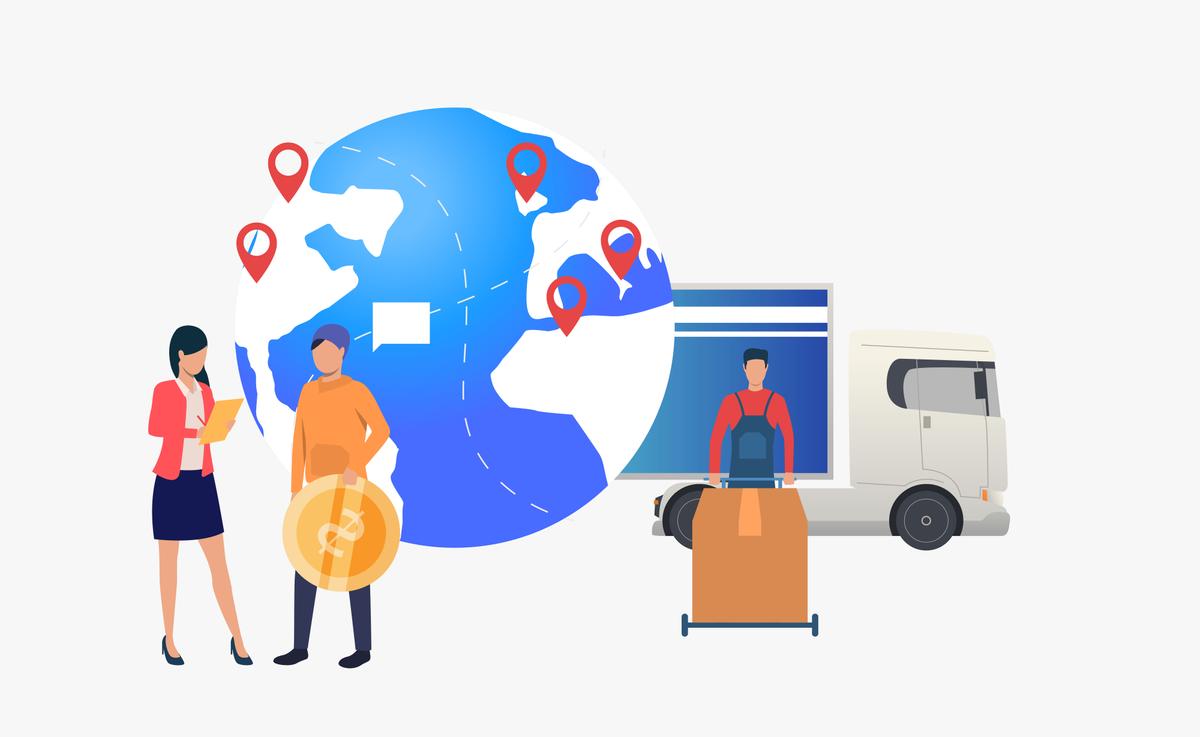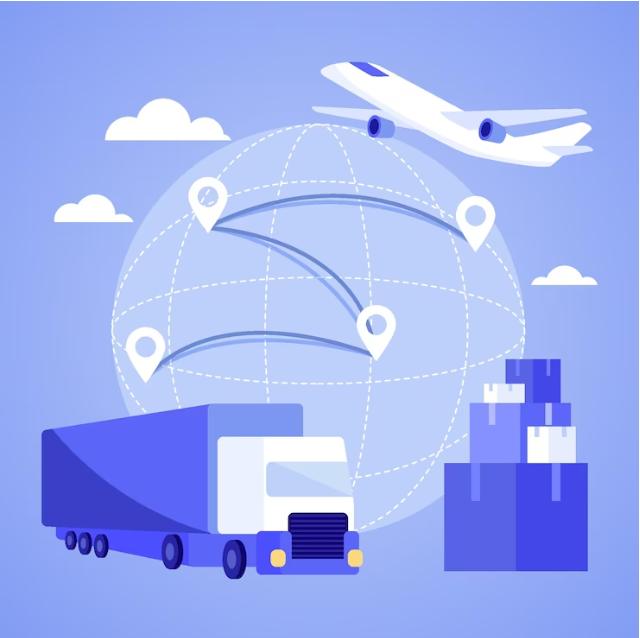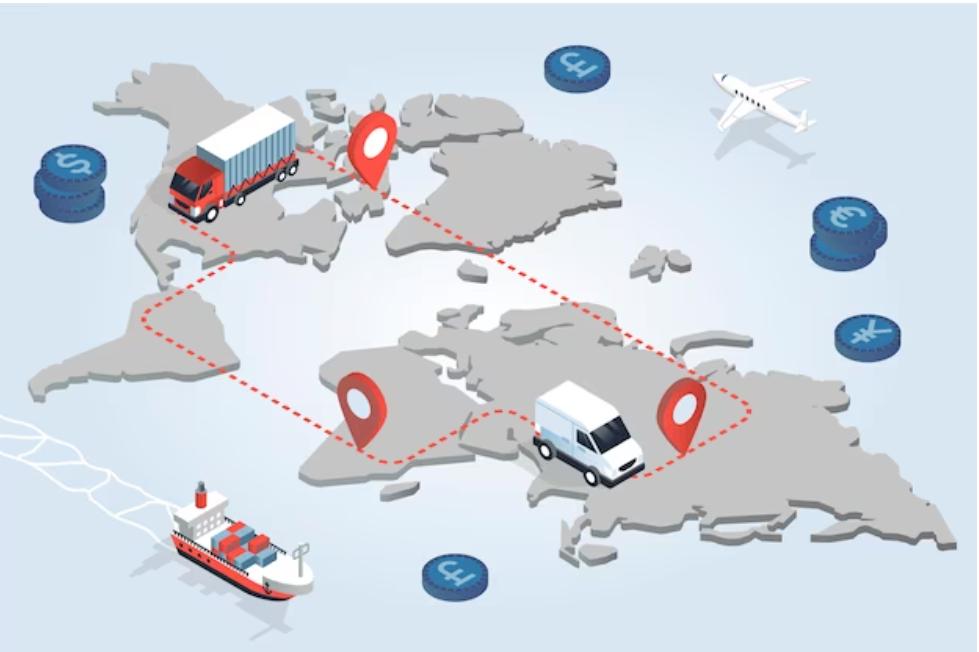
Navigating Logistics Outsourcing: Decoding the Choice Between 3PL and 4PL
Jan 14, 2024
Outsourcing logistics is pivotal for businesses, and the choice between Third-Party Logistics (3PL) and Fourth-Party Logistics (4PL) is crucial. 3PLs specialize in specific functions, while 4PLs offer holistic supply chain management. Collaboration between them ensures an efficient and high-performing supply chain. Consider factors like business size, control, scalability, cost, technology, geographic reach, and service range when making this strategic decision.
In the fast-paced world of business, outsourcing logistics has become a strategic move for companies seeking to streamline operations, reduce costs, and enhance customer service. As logistics operations demand expertise, resources, and advanced technologies, outsourcing to logistics service providers allows businesses to focus on core competencies. When contemplating this shift, the crucial decision lies in choosing between a Third-Party Logistics Provider (3PL) and a Fourth-Party Logistics Provider (4PL). Let's delve into the intricacies of each and guide you through the decision-making process.
Understanding the Essence of Logistics Outsourcing:
Logistics service providers bring a wealth of knowledge, experience, and industry best practices, allowing businesses to efficiently manage complex logistics operations without the need for in-house talent. Outsourcing helps in reducing internal costs associated with warehouses, fleets, technology, and labor. Additionally, logistics service providers leverage their networks to negotiate better rates with carriers, optimize transportation routes, and enhance overall operational efficiency.
Read More: Logistics Planning in 2024: A Comprehensive Roadmap

Why Opt for Outsourced Logistics?
1. Scale Operations for Global Demands:
With the ubiquity of internet access, catering to a global audience demands a logistics strategy that can scale seamlessly. Third-party logistics service providers facilitate this scalability, enabling businesses to expand operations, fulfill customer orders efficiently, and stay ahead of competitors. This approach not only saves valuable time but also proves to be a cost-effective solution.
2. Streamline Core Operations:
Defining logistics involves a multifaceted approach encompassing the management of product sourcing, storage, and timely delivery to customers. Entrusting these intricate operations to an outsourced logistics team allows businesses to prioritize their core tasks. External service providers, equipped with in-depth expertise, manage logistical intricacies, allowing internal teams to concentrate on critical and value-adding aspects of the business.
3. Efficient Back-Office Management:
Outsourcing logistics services comes with the advantage of tapping into established infrastructures and skilled manpower. Logistics partners, armed with efficient systems, can swiftly process bills and conduct audits, reducing the burden on in-house teams. This streamlined back-office management enhances overall productivity, ensuring that your business functions with optimal efficiency.
4. Elevate Customer Satisfaction:
In the competitive world of e-Commerce, meeting customer expectations is non-negotiable. Outsourced logistics providers play a pivotal role in enhancing customer satisfaction by closely monitoring product movement and ensuring swift deliveries. Offshore teams, operating round-the-clock, contribute to quick delivery processes, fostering customer loyalty and long-lasting partnerships.
5. Delegate Liabilities and Handle Petty Expenses:
By partnering with an outsourced logistics provider, businesses can delegate various liabilities, including safety ratings, insurance certificates, and carrier contracts. A dedicated support team can efficiently handle carrier vetting processes and manage invoicing variances. Moreover, outsourcing agencies adeptly handle petty expenses such as insurance, transportation, and warehouse costs, alleviating the burden on internal teams and allowing them to focus on core responsibilities.
Recommended Reading: The Essential Guide to Smart Warehousing: Navigating Modern Logistics
Understanding Third-Party Logistics (3PL)
A Third-Party Logistics Provider (3PL) specializes in offering various logistics services, serving as an intermediary between businesses and carriers. This intermediary role encompasses crucial functions such as warehousing, transportation, and order fulfillment.
Key Responsibilities of 3PL:
Order Fulfillment:
3PLs focus on the physical movement of goods, ensuring timely and accurate delivery to end-users.
Supply Chain Optimization:
Their primary focus is on specific logistics functions, striving to enhance operational efficiency and achieve cost savings.
Communications:
Communication primarily revolves around the individual logistics services they provide, ensuring coordination within their defined scope.
Areas of Focus:
Specialization lies in specific logistics services like warehousing, transportation, and order fulfillment.
Relationships:
Relationships with clients and other logistics providers are often transactional, concentrating on the efficient execution of agreed-upon tasks.
Resources:
Typically, 3PLs own physical assets such as trucks and warehouses to facilitate logistics operations.

Divergent Processes: Operational Insight into 3PL
Receiving Inventory:
Accept shipments from suppliers and verify the accuracy of delivered goods.
Warehousing:
Store products efficiently, ensuring organized access and retrieval.
Inventory Management:
Track product levels, monitor stock movements, and maintain accurate records for inventory control.
Order Processing:
Receive, process, and prepare customer orders for shipping.
Shipping:
Coordinate with carriers, arrange transportation, and ship products to customers within stipulated delivery times.
Returns Management:
Handle product returns, process refunds, and manage reverse logistics.
Reporting & Analytics:
Provide data and insights on warehouse operations, inventory, and order fulfillment
Performance.
Relevant Reading: 7 Key Considerations When Choosing a Warehouse Location for Your 3PL Business
Transitioning to Fourth-Party Logistics (4PL)
A Fourth-Party Logistics Provider (4PL) operates at a higher echelon of supply chain management compared to 3PLs. They assume a holistic approach, overseeing and coordinating the entire supply chain process.
Key Responsibilities of 4PL:
Strategy Development:
Analyze logistics requirements and devise a tailored strategy for optimizing supply chain performance.
Provider Selection:
Identify, select, and manage 3PLs and other service providers to ensure efficient operations.
Integration & Coordination:
Synchronize and oversee all logistics activities across multiple providers for streamlined execution.
Technology Implementation:
Deploy and manage advanced technology systems for real-time visibility, communication, and analytics.
Supply Chain Optimization:
Continuously assess and improve logistics processes, identifying bottlenecks and implementing cost-effective measures.
Performance Management:
Monitor key performance indicators (KPIs) and provide data-driven insights for informed decision-making.
Collaboration & Innovation:
Work closely with clients and logistics partners to drive continuous improvements and innovation in the supply chain.

Collaboration Harmony: 3PLs and 4PLs Working Together
3PLs and 4PLs collaborate synergistically to deliver end-to-end supply chain solutions. While 3PLs execute specific logistics tasks, 4PLs provide strategic oversight and integration. This collaboration ensures a well-managed, high-performing supply chain.
Choosing Between 3PL and 4PL: Tailoring Solutions to Your Business
In the decision-making process, several factors influence the choice between a 3PL and a 4PL:
Business Size & Complexity:
Smaller businesses may find 3PLs suitable, while enterprises with complex supply chains benefit from 4PLs.
Control & Involvement:
If desiring more control, a 3PL is preferable, while those preferring delegated logistics operations may opt for a 4PL.
Scalability:
3PLs offer flexibility for anticipated growth, while 4PLs cater to comprehensive management across multiple 3PLs.
Cost:
Consider budget constraints and the potential return on investment, as 4PLs often command a premium.
Integration of Technology:
Opt for a 4PL if robust technological integration is crucial for supply chain optimization.
Geographic Reach:
Evaluate the logistics partner's regional or global reach based on business scope.
Range of Services:
Choose based on whether targeted services or end-to-end supply chain management aligns with your needs.
Ultimately, the choice between a 3PL and a 4PL depends on your specific requirements. Many 3PLs offer comprehensive supply chain solutions, blurring the lines between the two. When selecting a logistics partner, consider factors such as business goals, operational needs, scalability requirements, and the extent to which you want to outsource logistics functions or have them managed comprehensively